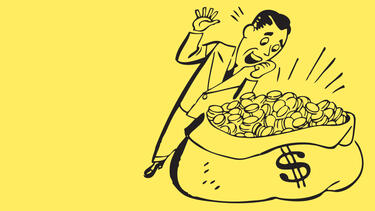Three Questions: Prof. Jacob Hacker on Tax Rates for the Rich
A recently published book by economists Emmanuel Saez and Gabriel Zucman argues that the richest Americans now pay lower tax rates than any other income group. The dramatic claim has prompted discussion of how best to measure tax rates, whether to offset certain tax credits, and what the optimal tax rate is for capital versus labor. But the trend lines are clear: wealthy Americans are paying less in taxes while economic inequality grows. We asked Yale political scientist Jacob Hacker, author of American Amnesia and Winner-Take-All Politics, to explain how this situation developed and why it’s proved politically difficult to raise taxes on the rich.

What’s behind the dramatic fall in tax rates on the very rich over the last 50 years?
Tax rates have fallen on the very rich (even as the incomes of the rich have exploded) for three main reasons. First, taxation of capital (whether in the form of capital gains taxes, estate and gift taxes, or corporate taxes) has fallen dramatically. Second, top marginal income tax rates have come way down. As late as the 1960s, there were twenty-four tax brackets and a top marginal tax rate of over 90 percent—which insured that the superrich paid a higher rate than the run-of-the-mill affluent. Third, the superrich and corporations have become better at avoiding taxation. As the political scientist Jeffrey Winters puts it, an enormous “wealth defense industry” has grown up to help the wealthiest Americans and most profitable U.S. businesses use offshore accounts and other strategies to minimize taxation.
How much does this change in tax rates contribute to overall economic inequality?
Falling tax rates have contributed a lot to rising inequality. Most analysts distinguish between what people earn through their labor and investments (pre-tax income) and what they take home after taxes and public benefits (post-tax income). If you make that distinction, what you find is that much of the rise in inequality has involved pre-tax incomes. It’s notable, however, that rising inequality has not been accompanied by rising tax progressivity, even though most Americans support more progressive taxes. What’s more, lower tax rates on the superrich certainly contribute to pre-tax inequality, because they encourage those at the top to extract and demand more from the corporations and other organizations they run.
If it were up to you, how would you address this dynamic?
The obvious answer is to raise taxes on the rich, which is in fact a very popular position right now. Politically, however, raising taxes has proved difficult, because the affluent are well represented in Washington and because there has been a persistent belief among political elites (not very well supported by the evidence) that higher taxes on the rich will destroy entrepreneurialism. Senator Elizabeth Warren (who’s been advised by Saez and Zucman) wants to test the idea that major new taxes on the affluent are a political non-starter. We’ll see if she gets the chance!
Big Issues: The Roots of America’s Exceptional Inequality
In Yale SOM’s Global Leadership: Big Issues course, Yale experts lead discussions of some of the most significant challenges facing the planet. Yale political scientist Jacob Hacker joined the class to discuss the tax, policy, and political forces that have disproportionately benefited the richest Americans —and caused many to feel left behind.